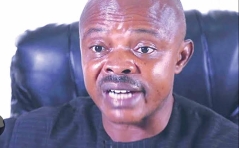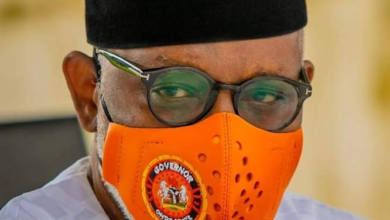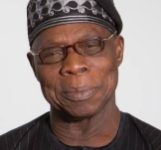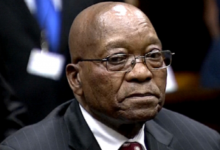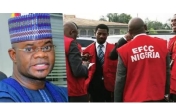
EFCC Vs Bello: What does the future hold?
By Attah Momoh
CITIZENS COMPASS—As writers, it is our job to revisit the past, and like seers or soothsayers, predict the future. This time around we take a look at what the corruption allegations levelled against Yahaya Bello and the drama as a result of it, could portend for his political future?
After the EFCC’s investigations and discoveries related to Governor Bello’s administration in Kogi State, several possible scenarios could unfold depending on the legal, political, and administrative dynamics in Nigeria. I want to share my thoughts on what I think are the key developments that might happen next.
The EFCC is likely to continue its investigations into the financial dealings of the Kogi State government. Ongoing probes into money laundering, fraudulent contracts, and misappropriation of public funds could uncover further evidence, which may lead to new charges or deepen the existing cases.
The EFCC may also expand its investigations to include other officials within the state government or even those outside the state administration who might be linked to the alleged crimes.
As we speak, many of us who are political observers are aware that many of the cabinet members under the current Kogi State governor, Usman Ododo served under Yahaya Bello. Ododo himself served under Bello as his Auditor-General for local government. Therefore, further investigations could rope some of the officials under Ododo and by extension, cast a negative light on the current Kogi administration.
In fact, there are some individuals linked to the past administration who have been caught in this web. The EFCC has already initiated court cases involving individuals connected to the immediate past administration, such as Ali Bello (Yahaya Bello’s nephew) and other officials accused of financial mismanagement. These cases are in the courts, and verdicts could take time due to the complex nature of Nigerian judicial proceedings.
If new evidence arises from ongoing investigations, more cases could be filed, potentially leading to more arrests and legal battles.
Although Yahaya Bello enjoyed immunity from prosecution during his tenure as governor, that immunity expired at the end of his term in January 2024. Therefore, the EFCC has the power to directly charge him if they have sufficient evidence linking him to financial crimes.
If indicted, Bello would face legal challenges, potentially impacting his political career and future ambitions.
Political ramification
Bello remains an influential figure in Nigerian politics, especially within the All Progressives Congress (APC). If he faces criminal charges or continued scrutiny by the EFCC, it could affect his political standing. However, as seen in other cases, Nigerian politicians often maintain strong support despite facing legal challenges. We are all witnesses to how James Ibori bounced back to his godfatherism role after being indicted and imprisoned for corruption practices when he was governor of Delta State. But the exception doesn’t make the rule. Only a few are still able to wield influence. Many of them go back into their shells and live quiet lives after the EFCC entanglement.
Conversely, if Bello is exonerated in court, or if the allegations are proven to be unfounded, he could use this to bolster his political profile, claiming victimization by political opponents or anti-corruption bodies. The EFCC on the other hand has repeatedly told Nigerians that this case has nothing to do with political with-hunt. And rightly so, because they have several evidence to show it. Bello has even made his situation worse by evading arrest. Those who have nothing to hide won’t have behaved the way he is behaving. He is not the first to be investigated by the EFFC and certainly won’t be the last, given the current trajectory.
Recovery of funds
The N19.3 billion that was returned by Sterling Bank to the Central Bank of Nigeria (CBN) has been partially resolved, but the EFCC may continue pursuing the recovery of more funds if new financial irregularities are uncovered. This could involve freezing more accounts, recovering assets, and further legal action to ensure that diverted public funds are returned to the state treasury or the CBN.
The EFCC may also push for additional fines or penalties against individuals or institutions found guilty of financial misconduct.
Reputation and public perception
Yahaya Bello’s public image has been significantly affected by the EFCC’s investigations. How this plays out next depends on the legal outcomes and the political landscape. If the courts clear him of any wrongdoing, he may seek to restore his reputation, while continued investigations or convictions could damage his political influence.
The Kogi public, particularly civil servants and pensioners, who were affected by unpaid salaries during the bailout scandal and screening for ghost workers, will likely remain a key audience following these developments closely. Many of them have already taken a position. According to them, Bello is guilty of the crimes he is being accused of due to what they went through when he was at the helm of affairs. They are the keenest observers of this case.
Political repositioning
Depending on the trajectory of the investigations, Yahaya Bello may attempt to reposition himself politically. Having run for the presidency in 2023, his future aspirations could hugely depend on how the legal challenges evolve. He may also seek alliances within his political party to shield himself from potential fallout or use the situation to consolidate his influence. That would be difficult though, given the fact that of all the APC governors, only Ododo is supporting him in public. No former APC governor or current one besides Ododo has shown support for Bello. This speaks volumes.
What happens next largely hinges on the continuation of EFCC investigations, the outcomes of court cases, and political developments surrounding Bello. If significant evidence of corruption emerges, it could lead to criminal charges against him, affecting his political career.
However, if the cases weaken or stall, like I I mentioned earlier, Bello could use the situation to portray himself as a victim of political persecution and continue to maintain influence in Nigerian politics. This is like a make or mar situation for Bello and those who are currently in charge of the EFCC. Reputations are at stake here.
The role of the judiciary, the EFCC’s resolve, and Nigeria’s political environment will all shape the future of these proceedings.


